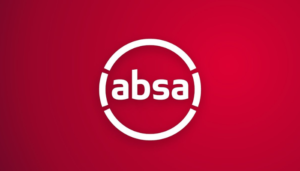Managing multiple debts can be overwhelming, creating financial pressure and disorganization. Debt consolidation loans provide a strategic way to simplify repayment, reduce stress, and regain financial control.
What are debt consolidation loans?
Debt consolidation loans are financial products designed to combine multiple existing debts into a single, more manageable loan. Rather than making multiple payments to different creditors each month, borrowers who opt for a debt consolidation loan make a single payment to one lender.
This approach not only simplifies the payment process but can also result in lower interest rates, thereby reducing the overall cost of debt over time.
Debt consolidation loans are typically offered at a lower interest rate compared to the average interest rates on existing debts, making them an attractive option for those seeking to streamline their finances and save money in the long term.
These loans can consolidate various types of debts, including credit card balances, personal loans, student loans, and more.
How do debt consolidation loans work?
The debt consolidation process involves several key steps aimed at simplifying debt management and potentially lowering the total interest paid. Let’s break down each step involved:
1. Debt Assessment
The first and most crucial step in the debt consolidation process is conducting a thorough assessment of all existing debts. During this stage, individuals need to review all financial obligations, such as credit card balances, high-interest personal loans, auto loans, and other debts.
This comprehensive evaluation provides a clear picture of the total amount owed and the interest rates being charged on each debt. Identifying any high-interest debts that are contributing to financial strain is essential.
Debt assessment allows borrowers to understand the full extent of their financial commitments and helps them determine whether debt consolidation is a suitable solution. Additionally, this stage highlights any problematic spending patterns or habits that may need to be addressed to avoid falling into further debt after consolidation.
2. Lender Selection
After completing the debt assessment, the next step is choosing a suitable lender or financial institution to provide the debt consolidation loan. This decision should not be taken lightly, as various lenders offer different terms, interest rates, and conditions. Comparing these factors is crucial to selecting the most favorable option.
When selecting a lender, it’s essential to consider factors beyond just interest rates. Borrowers should also review the loan’s repayment terms, any additional fees, the flexibility of the payment schedule, and the lender’s reputation.
Researching thoroughly and comparing different offers can make a significant difference in the overall success of the consolidation process.
3. Loan Application
Once a lender has been chosen, the borrower proceeds to the loan application stage. This step involves filling out an application form and providing detailed financial information, including income, credit history, and existing debts.
It’s crucial to be transparent and accurate during this stage, as lenders use this information to assess the borrower’s eligibility for the loan.
The application process may also involve a credit check and verification of the borrower’s financial status. Lenders will evaluate the borrower’s ability to make payments on time and determine the specific terms of the consolidation loan based on their financial profile.
4. Approval and Disbursement
After reviewing the application, the lender decides whether to approve the loan. If approved, the lender disburses the loan amount to the borrower’s account or directly to the creditors, depending on the arrangement.
The borrowed funds are then used to pay off the original debts, effectively consolidating all financial obligations into a single loan.
This step marks the beginning of a simplified repayment process, as the borrower now has only one monthly payment to make instead of multiple payments to various creditors.
5. Single Monthly Payment
The primary advantage of a debt consolidation loan is the convenience of a single monthly payment. This payment is typically lower than the combined payments of the individual debts, thanks to the potentially lower interest rate.
A single payment reduces the complexity of managing finances and minimizes the risk of missing a payment due to juggling multiple due dates.
Benefits of debt consolidation loans
Debt consolidation loans offer several notable advantages for individuals seeking to simplify their debt management and achieve financial relief. Here are three key benefits:
Lower Interest Rates: One of the primary reasons individuals opt for debt consolidation is the potential to secure a lower interest rate. Debt consolidation loans often have lower interest rates compared to the average rates on the original debts.
This reduction in interest can lead to significant savings over time, allowing borrowers to pay off their debt faster and with less financial strain.
Reduced Monthly Payments: Consolidating multiple debts into a single loan can result in lower monthly payments. By extending the loan term or reducing the interest rate, borrowers can experience immediate relief in their monthly budget.
Lower payments mean more breathing room for other essential expenses and a more manageable financial situation.
Simplified Financial Management: Dealing with multiple bills, due dates, and varying interest rates can be overwhelming. Debt consolidation loans simplify financial management by consolidating all debts into one payment.
This streamlined approach helps borrowers stay organized and reduces the likelihood of missing payments, which can negatively impact credit scores.
Important considerations for debt consolidation
While debt consolidation loans provide numerous benefits, it’s essential to approach this financial tool with caution and a clear understanding of the potential risks. Here are some key considerations to keep in mind:
1. Understanding Fees and Terms
Before signing a debt consolidation loan agreement, it’s crucial to carefully review the loan’s terms, conditions, and fees. Some loans may come with hidden costs or penalties for early repayment. Reading the fine print and fully understanding the loan’s terms can prevent unexpected expenses that could harm your finances.
2. Changing Financial Habits
Debt consolidation can help simplify finances, but it doesn’t address the root cause of debt accumulation. Borrowers must be committed to changing the financial habits that led to their debt in the first place. Without addressing these habits, there is a risk of falling back into debt after consolidation.
3. Risk of Collateral Loss
Some debt consolidation loans require using collateral, like a home or valuable assets, known as financial assets loans. While this can secure lower interest rates, it also carries risks. Missing payments could lead to losing the collateral, making it crucial to carefully assess the benefits and risks of secured loans.
Maximizing debt consolidation loans for financial freedom
Debt consolidation loans offer a practical solution for managing multiple debts, reducing financial pressure, and simplifying payments. Consulting a financial advisor helps borrowers make informed decisions and plan responsibly for a more secure financial future.
While effective, debt consolidation requires careful consideration of fees, terms, and risks. Changing financial habits and maintaining payment discipline are crucial for long-term success. When managed well, these loans can lead to financial freedom and stability.





